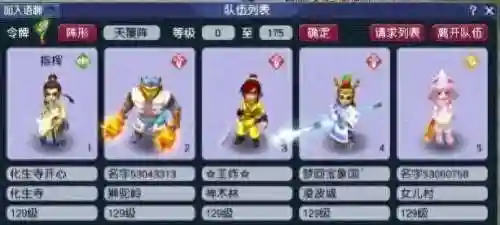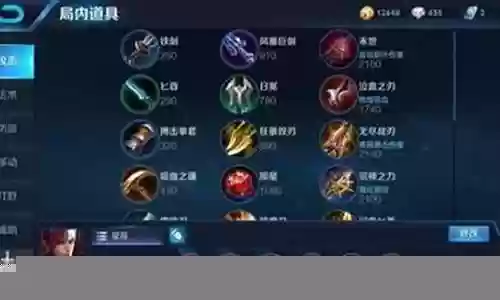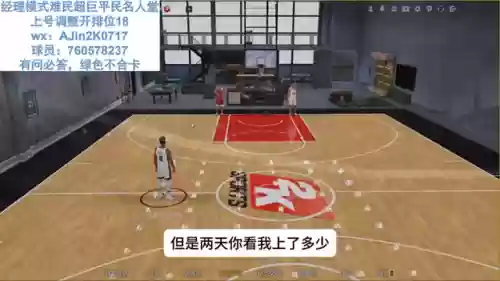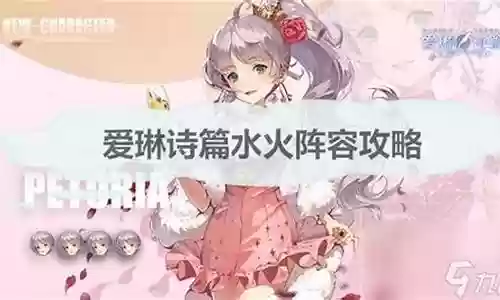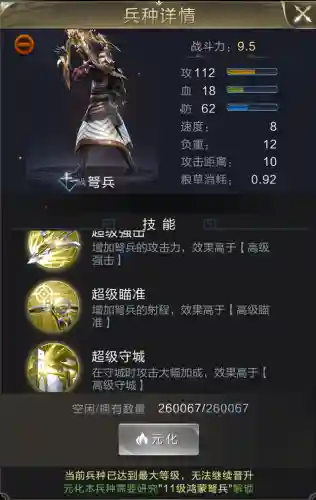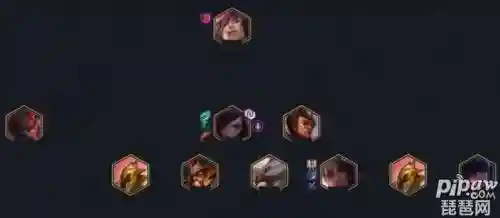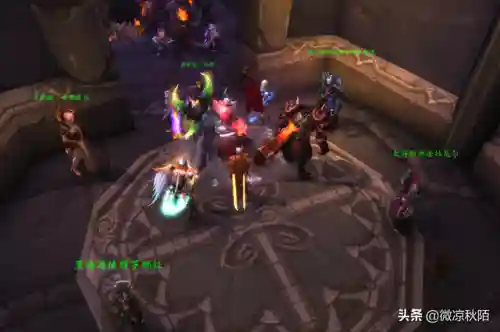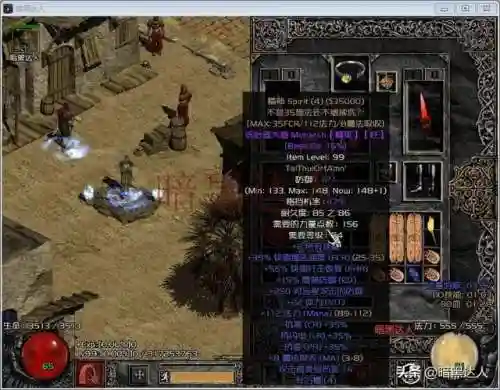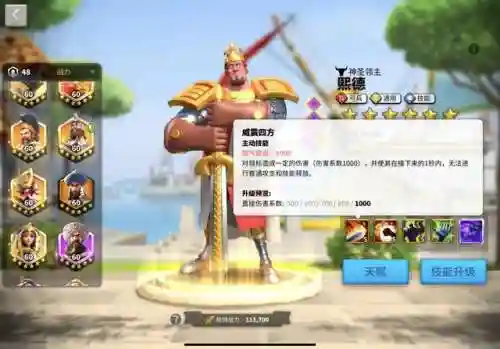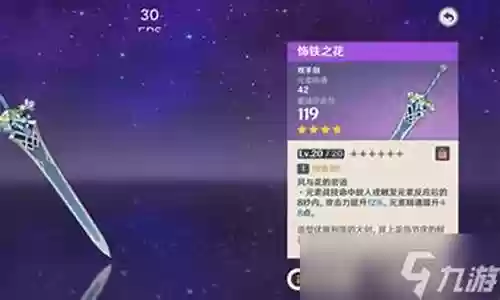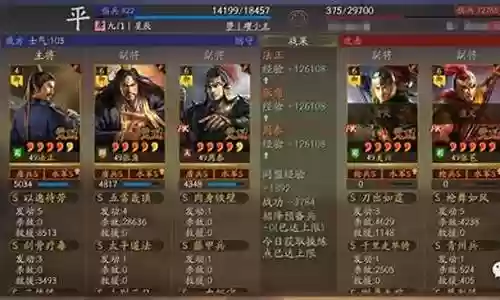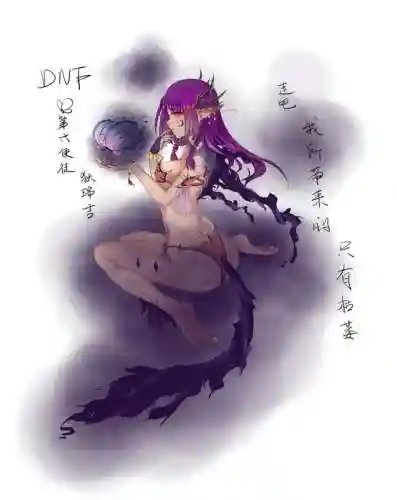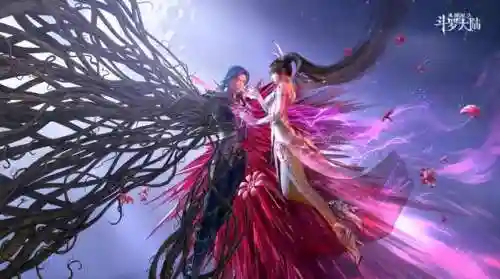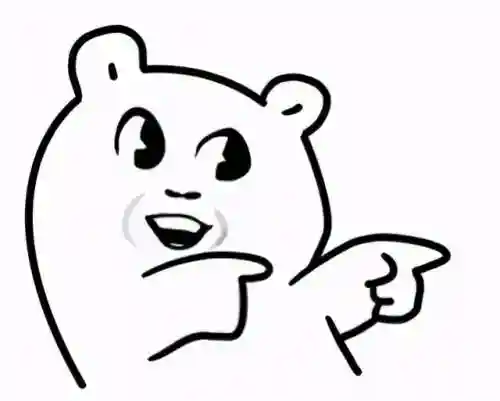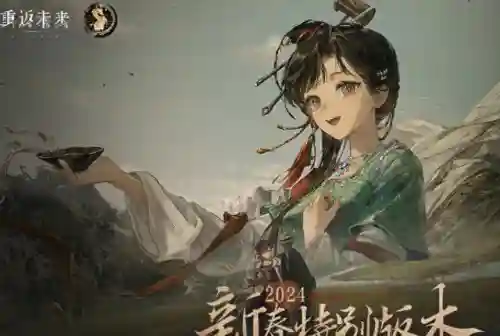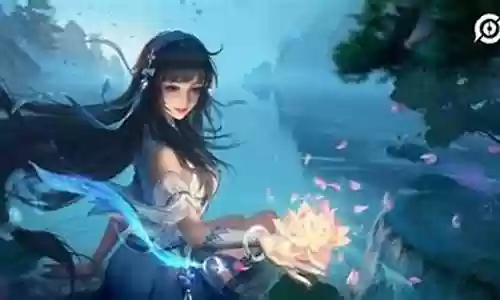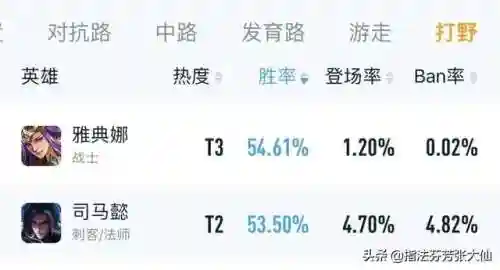鹿鼎记1国语版(《鹿鼎记》免费观看国语版)
Along a coastal road somewhere south of the Yangtze River,a detachment of soldiers, each of them armed with a halberd, was escorting a line of seven prison carts, trudging northwards in the teeth of a bitter wind.
在江南某处沿海的一条大道上,一队士兵,每人手持一把长矛,护送着一行七辆监车,在凛冽的寒风中艰难地向北行进。
In each of the first three carts a single male prisoner was caged, identifiable by his dress as a member of the scholar class.
在头三辆车里,每辆车上都关着一名男犯,从他们的衣着可以确认他们的身份是儒生。
One was a white-haired old man. The other two were men of middle years.
一个是白发苍苍的老人,另外两个是中年人。
The four rear carts were occupied by women, the last of them by a young mother holding a baby girl at her breast.
后面的四辆囚车上关押着妇女,最后一辆是一位年轻的母亲,怀里抱着一个女婴。
The little girl was crying in a continuous wail which her mother's gentle words of comfort were powerless to console.
小女孩哭个不停,她母亲温柔的安慰话也无法使她安静下来。
One of the soldiers marching alongside, irritated by the baby's crying, aimed a mighty kick at the cart.
走在监车旁的一个士兵,被婴儿的哭声激怒了,对准马车狠狠地踢了一脚。
'Stop it! Shut up! Or I'll really give you something to cry about!' The baby, startled by this sudden violence, cried even louder.
别哭了!给我闭嘴!不然我真的会叫你哭的!' 婴儿被这突如其来的暴力吓了一跳,哭得更响了。
Under the eaves of a large house, some hundred yards from the road, a middle-aged scholar was standing with a ten or eleven-year-old boy at his side.
在旁路几百码远的一所大房子的屋檐下,站着一位中年秀才,一个十、十一岁的男孩在他身边。
He was evidently affected by this little scene, for a groan escaped his lips and he appeared to be very close to tears.
他显然受到这一小场面影响,因为他的嘴角发出一声呻吟,似乎要哭出来了。
'Poor creatures!' he murmured to himself.
"可怜的人啊!"他喃喃自语
'Papa,' said the little boy, 'what have they done wrong?'
“爸爸,”小男孩说,“他们做错了什么?”
'What indeed!' said the man, bitterly. 'During these last two days they must have made more than thirty arrests. All our best scholars.
“做错了什么!”那人痛苦地说。"在过去的两天里,他们逮捕了三十多人。都是我们最棒的读书人。
And all of them innocents, caught up in the net,' he added in an undertone, for fear that the soldiers might hear him.
“他们都是无辜的,都被网落住了,”他低声补充说,生怕士兵们听见。
That girl's only a baby,' said the boy. 'What can she possibly be guilty of? It's very wrong.'
“那个女孩只是个孩子,”男孩说。“她能犯什么罪?这是非常错误的。”
'So you understand that what the Government soldiers do is wrong,' said the man. 'Good for you, my son!' He sighed.
“你明白官兵的所作所为是不对的,”那人说,“我的儿子,你真棒!
They are the cleaver and we are the meat.
人为刀俎,我为鱼肉
They are the cauldron and we are the deer.'
人为鼎镬,我为鹿麋
'You explained "they are the cleaver and we are the meat" the other day, papa' said the boy.
你前几天解释说'他们是刀俎我们是鱼肉' 爸爸。”男孩说。
'It's what they say when people are massacred or beheaded.
当人们被屠杀或砍头时,他们就这么说。
Like meat or fish being sliced up on the chopping-board.
就像肉或鱼被切在砧板上一样。
Does"they are the cauldron and we are the deer" mean the same thing?'
那“他们是鼎镬我们是鹿麋”意思是一样的吗?”
'Yes, more or less,' said the man; and since the train of soldiers and prison carts was now fast receding,
“是的,或多或少,”那人说。由于士兵和监车队的队伍正在迅速经过,
he took the boy by the hand.
他拉过男孩的手。
'Let's go indoors now,' he said. 'It's too windy for standing outside.'
“我们现在进屋去吧,”他说。‘风太大了,不能站在外面了。’
Indoors the two of them went, and into his study.
于是,他们两人走进屋里,进了他的书房。
The man picked up a writing-brush and moistened it on the ink-slab, then, on a sheet of paper, he wrote the character for 'a deer. '
那文士提笔蘸上了墨,在纸上写了个“鹿”字,
The deer is a wild animal, but although it is comparatively large, it has a very peaceable nature.
鹿是一种野生的动物,虽然是庞然大物,性子却极其和平,
It eats only grass and leaves and never harms other animals.
只吃青草树叶,从不伤害别的野兽。
So when other animals want to hurt it or to eat it, all it can do is run away.
所以当其他凶猛的野兽要伤害它吃它的时候,它只有逃跑,
If it can't escape by running away, it gets eaten.'
倘若它逃不了,便只有给人家吃了。”
He wrote the characters for 'chasing the deer' on the sheet of paper.
又在纸上写了“逐鹿”两字,
'That's why in ancient times they often used the deer as a symbol of Empire.
说道:“因此古人常常拿鹿来象征帝国。
common people, who are the subjects of Empire, are gentle and obedient.
平民百姓是帝国的臣民,他们是温和而顺从的。
Like the deer's, it is their lot to be cruelly treated and oppressed.
就像鹿的一样,被残酷对待和压迫。
In the History of the Han Dynasty it says "Qin lost the deer and the world went chasing after it".
《汉书》中写着“秦朝把鹿丢了,整个世界都在追逐它。”
That means that when the Qin Emperor lost control of the Empire, ambitious men rose up everywhere and fought each other to possess it.
这意味着当秦皇失去了帝国的控制权,野心勃勃的人到处起义,彼此争斗,想去占有它。
In the end, it was the first Han Emperor who got this big, fat deer by defeating the Tyrant King of Chu.'
最终,是汉朝第一个皇帝,打败了强暴的楚霸王”得到了这只又大又肥的鹿
'I know,' said the boy. 'In my story-books it says "they chased the deer on the Central Plain'. That means they were all fighting each other to become Emperor.'
"我知道,"男孩说,"在我的故事书里写着'他们在中原追赶鹿 '。意思是他们都在为成为皇帝而互相争斗。
The scholar nodded, pleased with his young son's astuteness.
这位学者点了点头,为儿子的精明感到高兴。
He drew a picture of a cauldron on the sheet of paper.
他在纸上画了一口鼎的图像 。
'In old times they didn't use a cooking-pot on the stove to cook their food in, they used a three-legged cauldron like this and lit a fire underneath it.
"在古时候,他们不用炉子上的锅来煮食物,他们用像这样的三条腿的大锅在下面点了火。
When they caught a deer they put it in a cauldron to seethe it.
当他们抓到一只鹿,他们便把它在一口鼎里沸腾。
Those ancient Emperors and great ministers were very cruel.
那些古代的统治者和大臣们非常残忍,
If they didn't like somebody, they would pretend that they had committed some crime or other, and then they would put them in a cauldron and boil them.
如果他们不喜欢某个人,他们会诬陷他们犯了罪或其他什么的,然后他们会把他放进锅里煮的。
In the Records of an Historian Lin Xiangru says to the King of Qin,
《史记》记载,蔺相如对秦王说:
"Deceiving Your Majesty was a capital offence. I beg to approach the cauldron."
“欺君乃死罪。我乞请汤镬。'
What he meant was, "I deserve to die. Put me in the cauldron and boil me.'"
他的意思是,‘我该死。请把我放进大锅里并把我煮了"
'Often in my story-books I've seen the words "asking about the cauldrons in the Central Plain',' said the boy. 'It seems to mean the same thing as"chasing the deer in the Central Plain'.
"在我的故事书里,我常常读到“问鼎中原”,男孩说。这似乎和“追逐中原的鹿”的意思是一样的"
It does,' said the man. '
“是的,”那文士说。
King Yu of the Xia dynasty, the first dynasty that ever was, collected metal from all the nine provinces of the Empire and used it to cast nine great cauldrons with.
第一个王朝,夏朝的夏禹王,曾经收集了帝国所有九个省的金属并铸了九口大鼎
'"Metal" in those days meant bronze.
当时的所谓‘金属’其实就是铜。
Each of these bronze cauldrons had the name of one of the nine provinces on it and a map showing the mountains and rivers of that province.
每一口鼎上铸了九州的名字和显示那个州的山脉和河流的 地图,
In later times whoever became master of the Empire automatically became the guardian of these cauldrons.
稍后的时代,无论谁成为帝国的主人,都会自动成为些鼎的守护者。
In The Chronicle of Zuo it says that when the Viscount of Chu was reviewing his troops on Zhou territory and the Zhou king sent Prince Man to him with his royal compliments, the Viscount questioned Prince Man about the size and weight of the cauldrons.
《左传》上说:‘楚子观兵于周疆。周王使王孙满劳楚子。楚子问鼎之大小轻重焉。'
Of course, as ruler of the whole Empire, only the Zhou king had the right to be guardian of the cauldrons.
当然,作为整个帝国的统治者,只有周王才有权成为这些鼎守护者 。
For a mere Viscount like the ruler of Chu to ask questions about them showed that he was planning to seize the Empire for himself.'
一个像楚国统治者一样的诸侯来问这些鼎的问题,表明他是怀有谋反的想法,蓄谋为自己篡夺帝国的王位。"
'So "asking about the cauldrons" and "chasing the deer" both mean wanting to be Emperor,' said the boy.
“所以问鼎’和‘逐鹿’都意味着想要成为“皇帝,”男孩说,
'And "not knowing who will kill the deer" means not knowing who is going to be Emperor.
“而‘不知鹿死谁手’意味着不知道谁会做皇帝。”
'That's right,' said the man. 'As time went by these expressions came to be applied to other situations as well,
"没错,"那人说,"随着时间的流逝,这些表达出现了应用于其他情况也是如此,
but originally they were only used in the sense of wanting to be Emperor.' He sighed.
但最初它们只是用在想成为皇帝这个意义上。"他叹了口气,
'For the common people though, the subjects of Empire, our role is to be the deer.
“对于老百姓,思想,帝国的臣民,我们的角色是做那只鹿。
It may be uncertain who will kill the deer, but the deer gets killed all right. There's no uncertainty about that.'
谁会杀死这只鹿也许还不确定,但这只鹿是会被杀掉的,这一点没有不确定性。”
He walked over to the window and gazed outside.
他走到窗前,凝望着外面。
The sky had now turned a leaden hue showing that snow was on its way.
这时天空已经变得阴沉沉的,表示雪要来了
He sighed again,'He must be a cruel God up there. Those hundreds of poor, innocent souls on the roads in this freezing weather. The snow will only add to their sufferings.'
他再一次叹道:“老天何其不仁,数百个贫苦无辜之人,在这冰霜遍地的道上行走。下起雪来,可又得多受一番折磨了。”
Two figures caught his eye, moving along the highway from the south.
他看到南边大道上两个人在冒雪行走
They walked close together, side by side, each of them wearing a coolie hat and a rain-cape.
并肩而来,头戴斗笠,
As they drew nearer, he recognized them with a cry of pleasure.
那两人走到近处,那文士认出了他们的面貌。大喜道:“
It's Uncle Huang and Uncle Gu,' he said to the boy as he hurried out to greet them.
是你黄伯伯、顾伯伯来啦!”他对孩子喊着,快步迎出去,
'Zongxi, Yanwu, what good wind blows you hither?' he called out to them.
叫道:“宗羲兄、炎武亭林兄,哪一阵好风,吹得你二位光临?”

